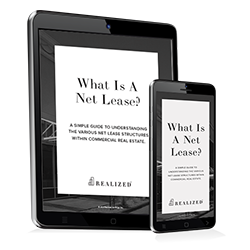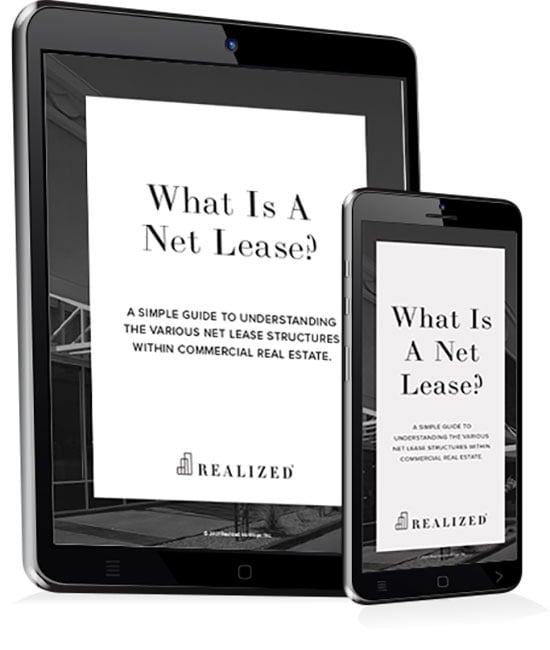
Real estate investors have no shortage of opportunities when it comes to allocating investment funds to commercial properties.
Some investors purchase properties with triple net (NNN) leases in place because they offer stability from creditworthy national or regional corporate tenants. Other investors, meanwhile, seek to reposition new anchor tenants into their existing commercial assets with triple net leases because these tenants typically sign long-term leases for up to 20 years.
Triple net leases can provide many benefits for property owners. In this article we’ll discuss reasons why landlords should consider triple net leases for their tenants, as well as the pros of cons of NNN lease structures as they affect property owners.
What is a triple net lease?
In a triple net lease, the tenant is financially responsible for the property in which they are located, yet they don’t own the physical space. Although they are renters, tenants are responsible for three ongoing operating costs:
- Property taxes
- Insurance
- Maintenance and repairs
Both parties can benefit from this type of lease structure. Since tenants assume much of the risk and responsibility of the property’s maintenance and upkeep, they typically receive lower monthly rental rates than with gross leases where the property owner pays for all operating expenses. Lower lease rates also can help property owners draw in new tenants if they do find themselves with a vacancy.
Triple net lease investment properties usually have well-established and creditworthy tenants in place -- think retailers such as Starbucks, Home Depot, Piggly Wiggly, Hardee’s, CVS Pharmacy or Walgreens. These leases are usually single tenants under net lease rather than a multi-tenant structure.
Pros of a triple net lease
Many landlords only offer triple net leases because they can reduce their investment risk by having tenants assume responsibility for expenses that can increase unexpectedly, such as replacing a roof or repaving a parking lot.
Investors also enjoy the stability provided by leases typically lasting 10 years or more with clearly defined monthly rental income. Since they have very little to do with the property’s upkeep and management, they can free up time to pursue other ventures or investments that require more oversight.
Triple net leases also are often inked by tenants with strong corporate balance sheets, which can minimize investment risk. One final potential benefit is that triple net leases often include options to account for additional rent increases adjusted for inflation.
Tenants, meanwhile, can leverage their creditworthiness to bargain for lower rental rates since they may have a proven track record of well-documented fiscal responsibility.
Cons of a triple net lease
It’s important landlords carefully vet any prospective tenants as triple net leases are a long-term relationship. Also, if a tenant breaks their lease then investors could be out of pocket for property expenses, taxes and insurance, at least until they find a new tenant.
Tenants and landlords should be aware of a building’s age and disposition as well. Older Class B or C properties could require major repair or renovation, which could put financial strain on tenants. Tenants could also delay paying for needed maintenance expenditures, which could result in further deterioration of the investment property.
Lastly, although NNN leases provide consistent income, the amount is usually locked in -- landlords can’t increase rent to match current market rates. Over time, this fixed-rate lease structure could limit potential earnings.
When to do a triple net lease
The advantages outlined above are predicated on how triple net leases and NNN properties might fit into your investment portfolio and risk profile.
Factors such as location and strong regional growth can be extremely important with these properties. Investment properties in areas with high-growth populations could have lasting staying power. Similarly, properties near popular and well-trafficked businesses could prove beneficial to both landlord and tenants -- think the Whole Foods and Trader Joe’s effect where rents escalate and neighboring properties appreciate in value near these stores.
Lastly, when offering triple net leases, investors might consider clients that sell the things people need to survive -- gas, food, clothing retailers or medical services providers can make for lasting tenants and lower-risk investments.
When offering triple net leases, it’s important both parties fully understand their obligations so landlords and tenants can be better prepared to meet their lease and fiscal responsibilities.



